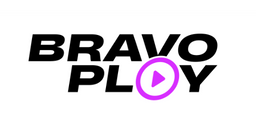Cyber Security Measures at New Online Casinos
The internet changes quickly, and so do the tricks used by cybercriminals. New online casinos process personal data and payments from the first day they launch, which makes safety checks essential. The upside is that reputable new brands build strong protection and follow strict rules before they accept deposits.
This guide shows how safety works, what you should check yourself, and the warning signs to avoid. For a short primer, see the safety standards used by new online casinos.
Why safety matters at new casinos
New sites often use modern tech and fresh game libraries, but they have a short public track record. That is why you should confirm licensing, game fairness, data protection, and banking rules before you sign up.
Licensing and regulation
Before opening to the public, new online casinos must obtain a licence from an official authority (for example, the Malta Gaming Authority, Estonia’s Tax and Customs Board, Sweden’s Spelinspektionen, or Curaçao eGaming). In Canada, rules are set at the provincial level (e.g., Ontario’s iGaming framework). A valid licence indicates the operator met baseline standards: financial stability, customer support, identity checks, and independent game testing.
KYC: what documents are normal
Licensed operators follow KYC (Know Your Customer) rules. Expect to submit a passport, driver’s licence, or national ID, plus a recent utility bill or bank statement. Some sites also ask for proof that you own the payment method you are using. Upload documents only through the casino’s secure portal. Once KYC is complete, withdrawals can be approved with confidence. Learn more in our guide to the casino KYC process.
Game fairness (RNG and RTP)
Slots and table games run on random number generators (RNGs). Independent labs audit these systems to confirm unpredictability and that the long-term payout rate (RTP) matches the game’s stated figure. Reputable casinos source games directly from known providers and may display testing seals (e.g., eCOGRA, GLI, iTech Labs). The info screen of each game typically lists RTP, rules, and bet ranges.
Site and data security
All pages should load over HTTPS with a padlock icon. Reputable operators also use web application firewalls, DDoS protection, and secure payment processors to reduce risk. Some enforce HSTS to force browsers to use secure connections. If a site uses 3-D Secure for card payments, you will be prompted to confirm transactions with your bank’s code or app.
Account security: 2FA and passwords
Enable two-factor authentication (2FA) in your account settings. You will sign in with your password and a one-time code sent to your phone or generated by an authenticator app. Update your password every few months, use a unique email for gambling accounts, and consider a password manager to store strong, unique logins.
Banking safety: deposits and withdrawals
Clear rules on payment ownership, time frames, and limits are a good sign. The table below explains what to look for.
| Item | What to check |
|---|---|
| Ownership | The name on the payment method matches the account; extra proof may be needed after large wins |
| Time frames | Published pending period; typical timelines for e-wallets, cards, and bank transfers |
| Limits & fees | Minimum/maximum per transaction and any daily/weekly caps; any processing fees |
| Re-verification | Additional checks for unusual activity or policy changes are explained in the terms |
Scams and phishing
Trusted casinos will not ask for passwords or 2FA codes by email, SMS, or social media. Fraudsters may imitate logos and colours to trick you into entering credentials on a fake page. Bookmark the official domain and log in only from that bookmark. If you receive a message about account changes, verify it by contacting support through the dashboard.
Quick checks
- Every page uses HTTPS with a padlock
- Licence and company details match the regulator’s register
- Terms and bonus rules are easy to find and written clearly
- Support responds through official channels listed on the site
Player responsibilities
Keep your username, password, and payment details private. Do not share your account. Read the withdrawal policy and bonus rules before opting in. Avoid public Wi-Fi for sign-in and cash-outs; use mobile data or a secure home network. Log out on shared devices and clear saved credentials when you finish.
Responsible gambling tools
How to vet a new casino: a short checklist
- Confirm licence and company details in the footer and on the regulator’s register
- Scan the T&Cs, bonus rules, and withdrawal policy
- Look for independent testing (eCOGRA, GLI, iTech Labs)
- Check banking limits, fees, and published payout times
- Enable 2FA and set deposit/time limits before your first deposit
- Test support with a simple question and keep the ticket number
- Make a small deposit and a small withdrawal to confirm processes
Charlon MuscatCasino Fact Checker
If something goes wrong
- Save evidence: screenshots of balances, game IDs, chat logs, emails, and timestamps
- Contact support via live chat; follow up by email for a ticket number
- Ask for the internal complaints process and response time
- Escalate to the listed ADR body or the regulator if available
- For payment issues, speak to your bank or e-wallet support
- Secure your access: change passwords, review 2FA, and protect your email
Charlon MuscatCasino Fact Checker

 Charlon Muscat
Charlon Muscat








